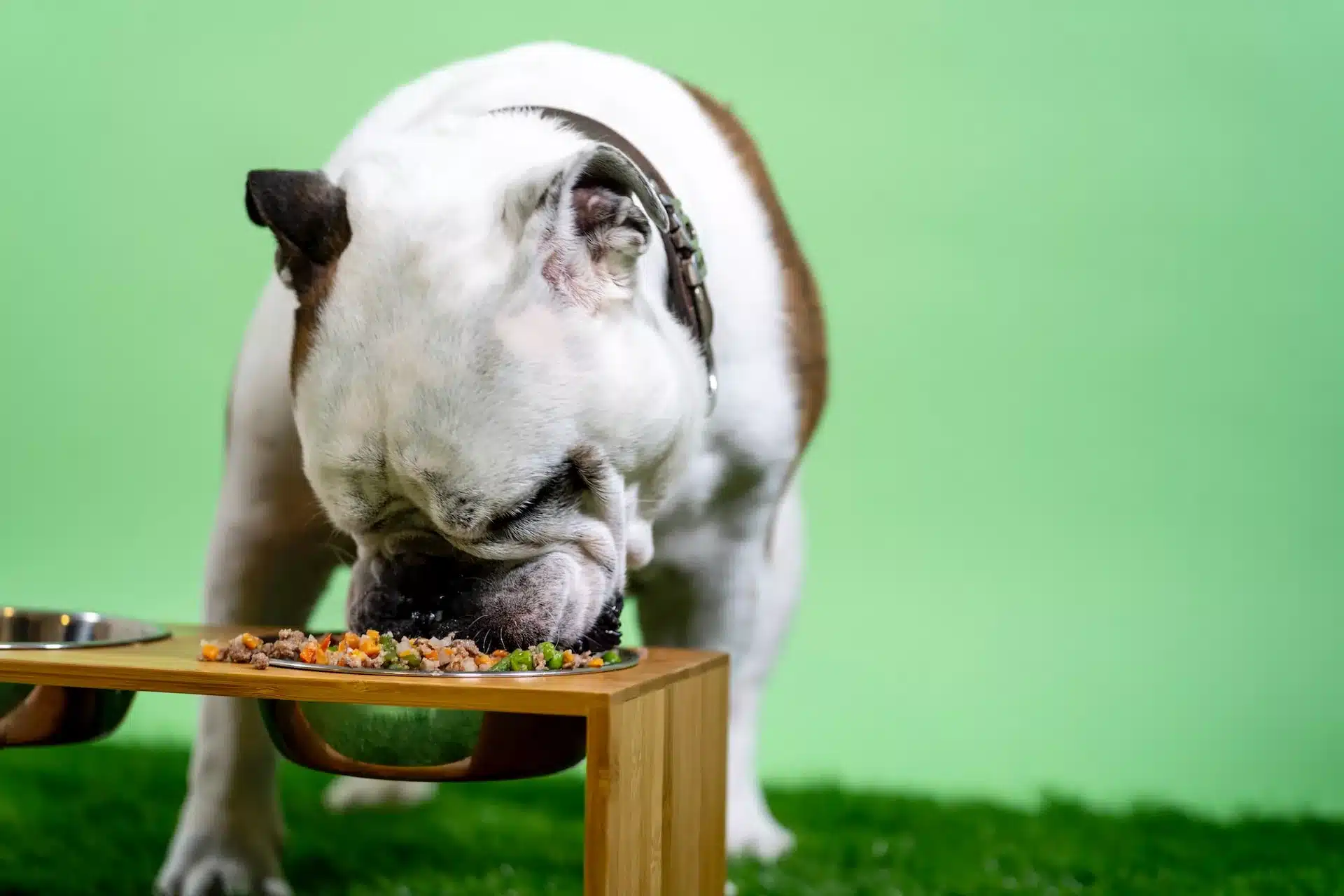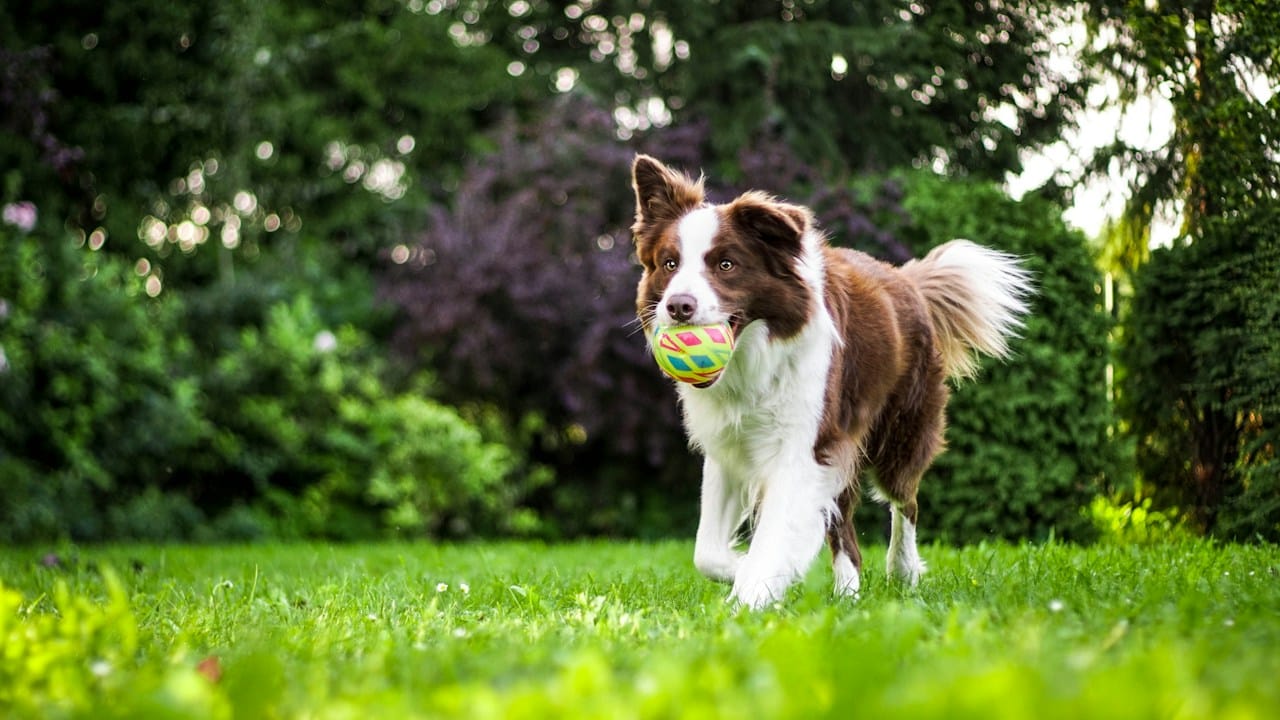People frequently consume cabbage, which is a popular heart-healthy food. If you’re preparing cabbage for yourself, you might be wondering if can dogs eat cabbage. In actuality, giving your dog small amounts of cabbage is acceptable.
You can feed cabbage to dogs. While some foods consumed by humans are bad for dogs, some other foods are beneficial. If you’re wondering whether cabbage is good or bad for dogs, the answer is that all types of cabbage are good and can be used as treats. Vegetables tend to be healthy and safe for dogs to consume. Cauliflower should only be given sparingly to dogs or young puppies. Dogs may eat cabbage in any form—cooked, raw, or red—as long as they don’t consume excessive amounts. Let’s look at how cabbage can help dogs’ health.
Table of Contents
You may be interested: Can dogs eat brussels sprouts? Can dogs eat brussels sprouts safely?
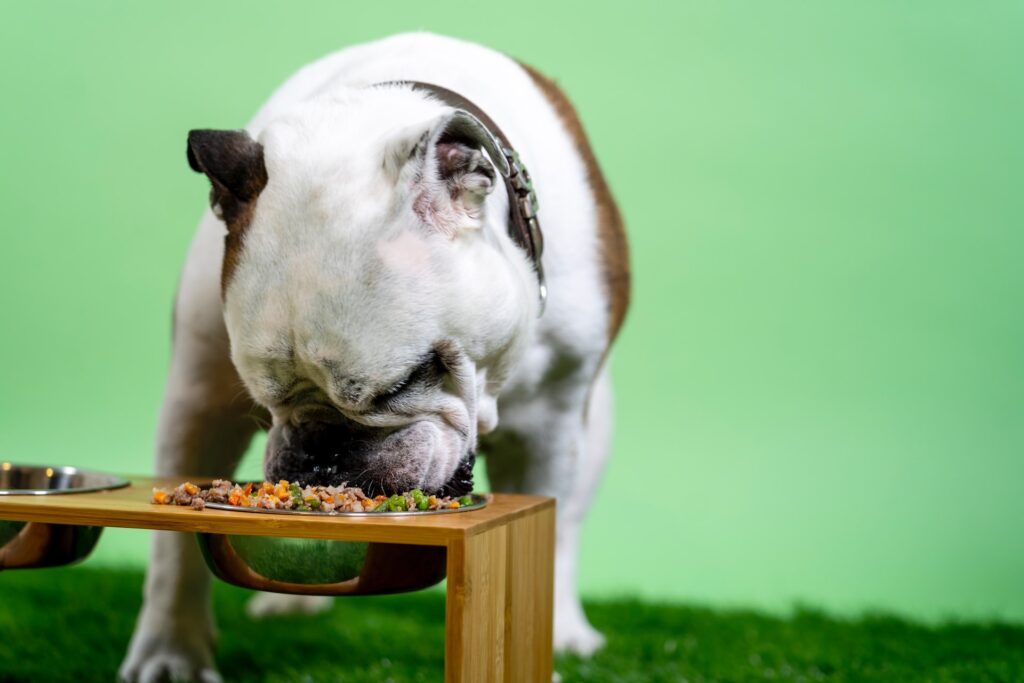
Benefits of Cabbage for Dogs’ Health
Dogs do not require cabbage as a staple food. In his lifetime, your dog may or may not consume green cabbage or other varieties of cabbage, and he will still be fine. However, cabbage is a great option if you’re looking for a nutritious treat for your dog or if you want to add more nutrients to his diet without increasing his intake of carbohydrates. This cruciferous vegetable is brimming with beneficial nutrients that can improve the health of your dog. In particular, it is a good source of vitamin C and other important vitamins like K, B6, and B1.
One of the essential vitamins, B6, is essential for the normal operation of the nervous system, red blood cells, and genes that control hormones, immune responses, and gene activation. Additionally, it is rich in beneficial fibers and necessary minerals like manganese, copper, and potassium. Furthermore, cabbage contains a lot of folates, which support normal metabolic processes like the synthesis of blood cells and amino acids. Additionally, cabbage is a rich source of phytonutrients and potent antioxidants. The cruciferous vegetable with the highest concentration of antioxidants—substances in the body known to aid in the fight against free radicals—is cabbage, thanks to its polyphenol content.
These dangerous free radicals, which can affect both humans and dogs, are unstable atoms that have a significant impact on the onset and progression of diseases like cancer, heart disease, and others. In addition to having anti-cancer properties, cabbage also has anti-inflammatory qualities that help dogs with arthritis, heart conditions, and inflammatory bowel disease. If that weren’t enough, cabbage also has antiviral and antibacterial properties that can aid in the fight against and recovery from infections in dogs.
Because of its high fiber content, cabbage also has the added benefit of regulating your dog’s digestion. If your dog is constipated, the healthy fiber in cabbage gives their bowel movements more bulk and encourages defecation. The fiber in cabbage can help your dog’s stool become more solid by absorbing water, which gives the stool more bulk and makes it simpler for your dog to pass out of his system. However, as was already mentioned, excessive cabbage consumption in dogs can also cause bloating and discomfort in the abdomen.
Additionally, the fiber in cabbage keeps dogs’ weight in check by allowing them to eat more food without gaining weight. And because of this, adding this vegetable to your dog’s food will help him feel fuller faster, making cabbage beneficial for dogs who are overweight or who have diseases like pancreatitis or diabetes that are also linked to weight.
Finally, cabbage protects your dog’s skin from irritation while also promoting skin health. Therefore, this green leafy vegetable can also make a great treat for canines with dry skin. We can’t argue that cabbage can be a fantastic green treat for your dog given all of these advantages. While all of these health advantages are welcome news for dog owners, we shouldn’t stray from the fact that meats are what our dogs require in their diet.
Possible health issues if you let your dog eat cabbage
By allowing your dogs to eat green cabbage, just like any human food, you are also putting your dog at risk. Dogs who consume cabbage in excess often experience excessive gas and flatulence, which can be very uncomfortable for their furry friends. Of course, these are not the only health risks associated with feeding cabbage to your dog, whether as a dinner or an evening snack.
Hypothyroidism is a serious side effect of letting your dog consume as many cabbages as possible. While cabbage is rich in many essential nutrients, it also contains a natural substance called thiocyanate that has a significant effect on the thyroid gland of your dog. However, your dog must continuously consume a lot of raw cabbage over an extended period for it to cause hypothyroidism. Even though it’s not likely to happen, it is still a possibility. Therefore, it’s best to only occasionally give your dog a small amount of cabbage to be on the safe side. Also, remember to only feed cooked cabbage to your dog because steaming or boiling it will effectively remove this toxic ingredient.
Giving your dog raw cabbage has the additional drawback of being more difficult to chew and digest. Therefore, don’t make it riskier or harder for your dog to eat this green treat. Again, if you only lightly cook the cabbage for a few minutes, you can already get rid of the poisonous thiocyanate. Of course, as always, avoid combining seasonings, herbs, spices, and other poisonous ingredients because doing so will only heighten the risks associated with consuming large amounts of cabbage.
Feeding Your Dogs Cabbage
Although cabbage is good for dogs, it doesn’t necessarily mean that all dogs will enjoy eating it. Watch for indications that adding cabbage—or any other food—to their diets is harming them. One of the most obvious symptoms of cabbage is excessive gas and flatulence. Pets may also experience diarrhea and upset stomachs. Just give your dog a tiny bit of cabbage if you’re giving it to them for the first time. You can start giving them a little more and more frequently if there are no unfavorable side effects.
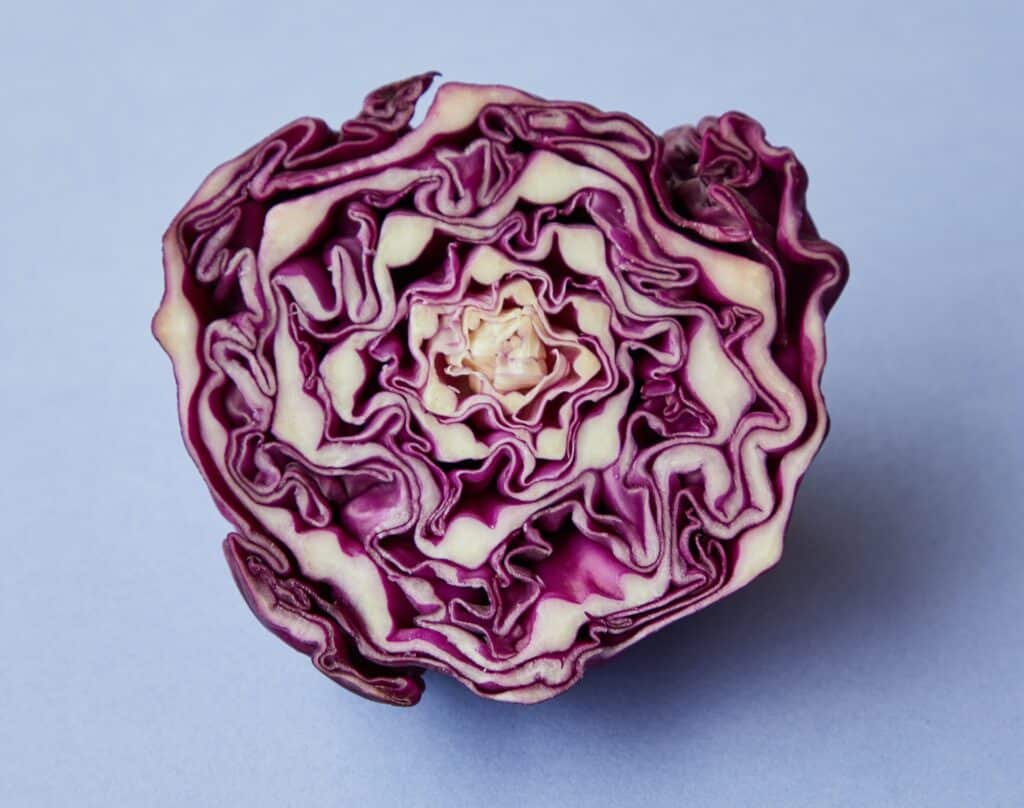
Red cabbage is safe for dogs to eat and is a favorite among them. It can provide a variety of nutritional advantages, including anti-cancer properties. Just like its green counterpart, red cabbage can give your dogs gas, so if they aren’t used to eating it, give them a small amount. Small cabbage portions are crucial because eating too much can result in hypothyroidism. This is due to thiocyanate, a naturally occurring substance found in cabbage that affects the thyroid gland. Cooking the cabbage before feeding it to your dogs is one method for getting rid of this substance.
How much cabbage is safe to give your dog?
Remember to introduce cabbage to your dog gradually and in small amounts, and keep an eye out for any negative reactions. By doing this, you’ll avoid overwhelming and shocking his stomach and you’ll be able to manage his symptoms if your dog reacts negatively to cabbage. And think of cabbage as a treat, just like the majority of human foods. Therefore, the daily caloric intake of your dog should not exceed 10% of treats like cabbage and other vegetables. The size, level of activity, and general health of your dog will all have an impact on this. Therefore, it’s best to speak with your veterinarian to receive more succinct dietary advice.
Just to give you a general idea, dogs should only be given small servings of cabbage, about 1/8 to 1/4 cup. Additionally, you should wash the cabbage to get rid of any dirt, pesticides, and bacteria before cooking or steaming it, just like you would with other human foods. To ease digestion and avoid choking and intestinal obstruction, the cabbage should also be cut into bite-sized pieces. To avoid giving your dog any harmful chemicals, it is best to only feed him organic fruits and vegetables.
Can Dogs Eat Cabbage Raw?
If you wash the cabbage first, cut it into smaller pieces, and give it to your dog in moderation, you can give them raw cabbage. A natural substance called thiocyanate, which was mentioned earlier, is present in raw cabbage and can harm your dog’s thyroid gland. Additionally, your dog may be more susceptible to hypothyroidism if he consistently consumes too much raw cabbage.
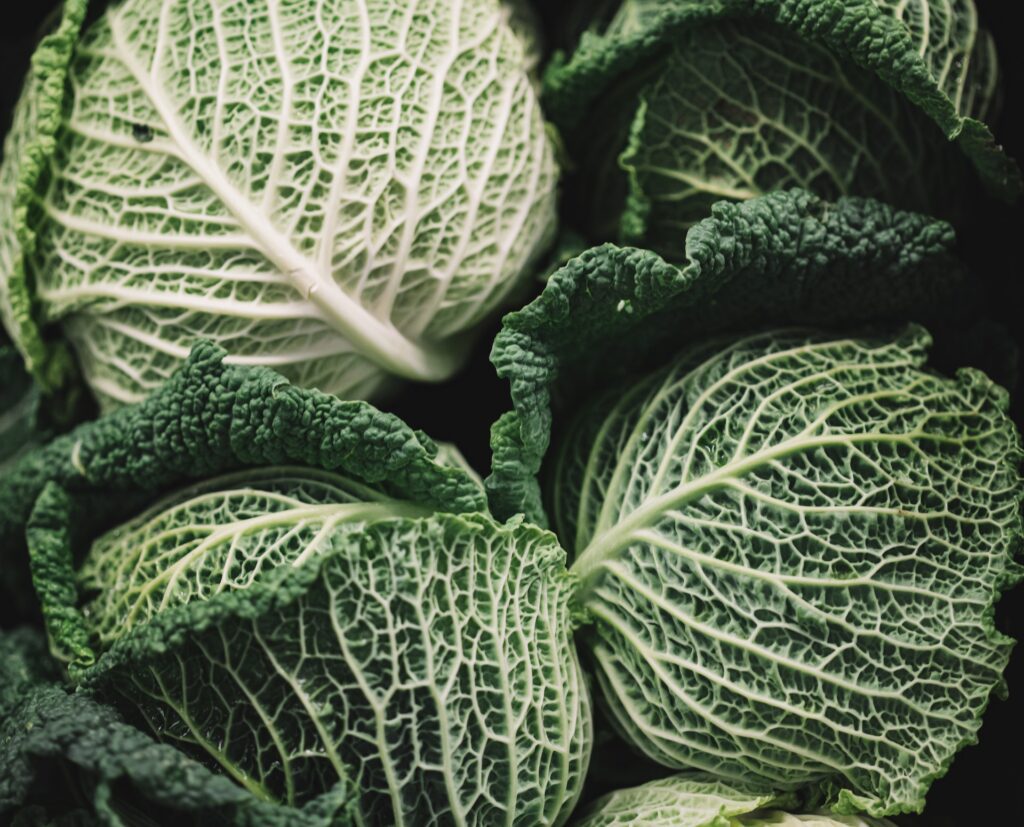
Can dogs eat cabbage rolls?
The majority of cabbage rolls are made with a lot of garlic, onion, and salt, which is a problem. It is okay to feed your dog cabbage rolls if you can make them without these three ingredients.
Can dogs eat cabbage-cooked
If they are adult dogs in good health, the majority of dogs can safely eat cabbage. Smaller dogs can handle one or two cooked cabbage bites, whereas larger or giant-sized dogs can handle a few extra raw cabbage morsels or bites. Vitamins can be found in cabbage.
Related post: Can dogs eat cucumbers? Are cucumber seeds safe for dogs?
Conclusion: Yes, Dogs Can Eat Cabbage
Cabbage is a great place to start when introducing more vegetables to your dog’s diet, along with other wholesome, leafy greens. Dogs require a lot of vitamins and minerals, so giving them small amounts of cabbage as a treat can be a great way to supplement their regular diets.
References: dogfood.guide, vetexplainspets
